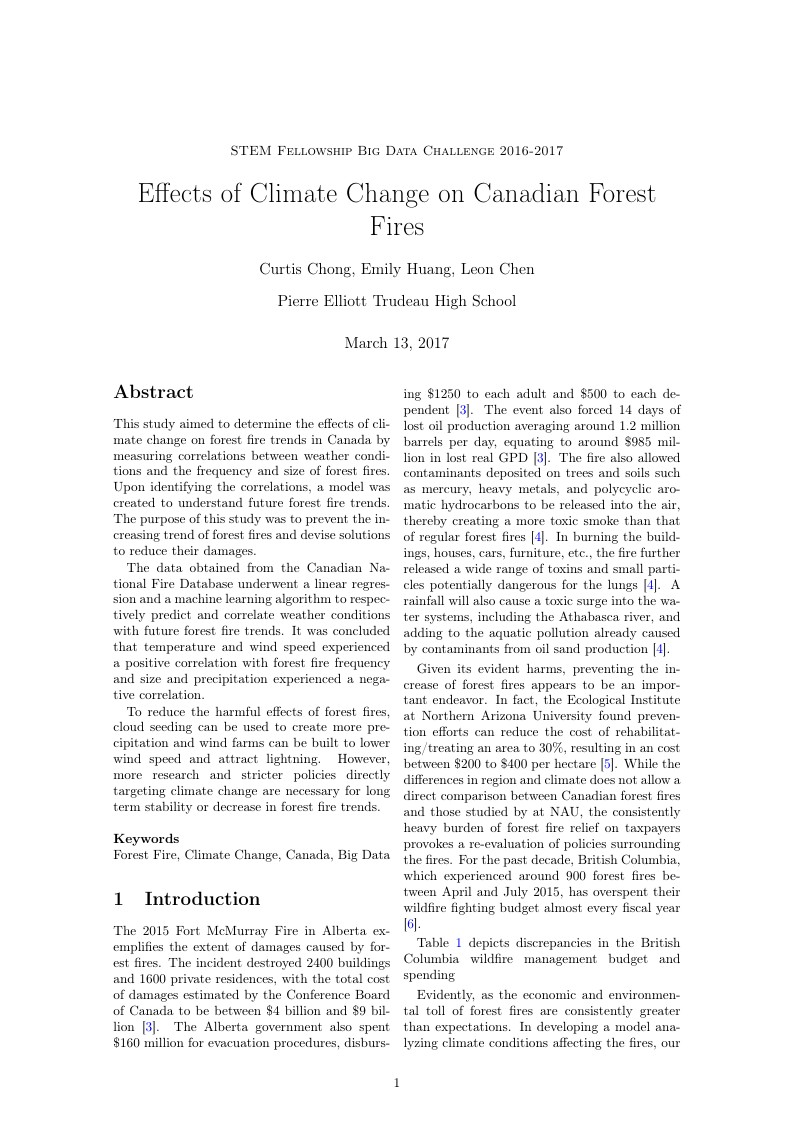
Effects of Climate Change on Canadian Forest Fires
Autor:
Leon Chen, Curtis Chong, Emily Huang, Nathan Lo
Letzte Aktualisierung:
vor 9 Jahren
Lizenz:
Creative Commons CC BY 4.0
Abstrakt:
This study aimed to determine the effects of climate change on forest fire trends in Canada by measuring correlations between weather conditions and the frequency and size of forest fires. Upon identifying the correlations, a model was created to understand future forest fire trends. The purpose of this study was to prevent the increasing trend of forest fires and devise solutions to reduce their damages. The data obtained from the Canadian National Fire Database underwent a linear regression and a machine learning algorithm to respectively predict and correlate weather conditions with future forest fire trends. It was concluded that temperature and wind speed experienced a positive correlation with forest fire frequency and size and precipitation experienced a negative correlation. To reduce the harmful effects of forest fires, cloud seeding can be used to create more precipitation and wind farms can be built to lower wind speed and attract lightning. However, more research and stricter policies directly targeting climate change are necessary for long term stability or decrease in forest fire trends.

\begin
Discover why over 25 million people worldwide trust Overleaf with their work.